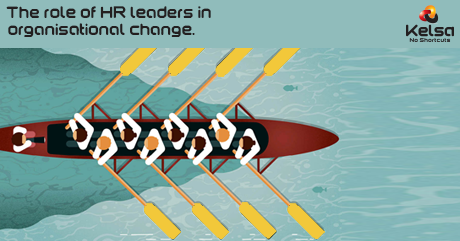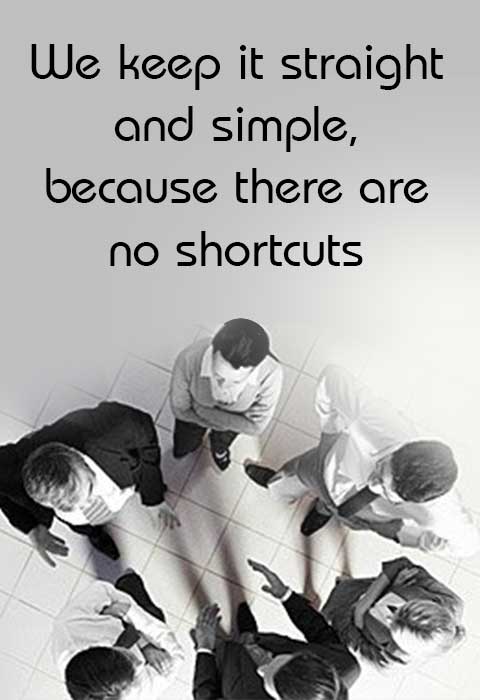
Change can bring discomfort and resistance, but is necessary within an organisation. And HR leaders play a critical role in ensuring that the workforce and systems within, adapt to it seamlessly and are offered adequate support to deliver effectively.
Needless to say, it is essential that HR leaders possess the planning and navigational skills to strategise and drive change within an organisation. Communication as well plays an important part in ensuring they drive the necessary acceptance and support to create desired outcomes.
The role of HR leaders
HR leaders are at the centre of an organisational change process and take on multiple roles to act as successful change agents. These include –
- Change Architect
As a process, the relevance and impact of organisational change is felt beyond technology and systems, and more importantly on humans. Effective HR leaders understand this and plan for change at two levels – ‘what’ will change and ‘how’ they will drive the change.
The ‘what’ will be addressed through the review of existing systems, and designing robust solutions that drive performance. They will then focus on ‘how’ to address the change by assessing the extent of impact it brings to components within the system and the organisational readiness for it.
- Change Leader
Effective leadership is imperative to successful change initiatives in an organisation. HR leaders will need to drive responsibility within their teams to ensure planning, implementation and effective follow through on issues. Further, they will need to devise measures to monitor the quality of implementation and direct actions as needed.
It is important they recognise that large-scale transformations need time and must encourage processes to evolve through the period. And, since teams will look up to the leadership to emulate the ways in which they embrace change, HR leaders will certainly need to lead by example and stay invested in advocating and driving the new processes and practices.
- Change Advisor
As change advisors, HR leaders don’t just design and implement the steps for change, but also step in to advocate for the change and guide the process as needed. This will mean that they institute measures to monitor the efficacy of processes, look for areas where improvements can be made and efficiencies that can be generated.
Additionally, they will work with and guide inter-disciplinary teams to foster ideas, help restructure processes, develop the Proof of Concept (PoC) and accelerate the ‘buy-in’ for new processes within the organisational leadership.
- Change Communicator
As effective change agents, HR leaders are aware that employees adapt better to change when included in discussions on why systems and processes are being transformed, and how things may become different within their existing work routines. Sharing knowledge and expertise on the new processes, as well as explaining the benefits that can be generated helps employees to stay positive and receptive to the idea of change.
Further, HR leaders will ensure they put in place an effective communication plan – reaching out to employees, and sharing as many tools and resources as possible so that they can stay well informed and embrace the new ways of doing things.
- Change Participant
By being a ‘participant’ to change, HR leaders demonstrate that they are personally invested in the process, and are accessible to employees, when they need support and direction. This will mean that they are well versed with the details of the processes being transformed and have a realistic understanding of the problems that could emerge and ways to troubleshoot them.
Being actively involved in the change process will also help them in being empathetic to employee and stakeholder reactions, understand the real nature of issues and challenges, and design effective solutions.
Delivering value in times of change
In addition to playing the above roles, it is important that HR leaders foster certain capabilities within their functions to stay well aligned with organisational priorities and effectively partner through the change process.
Readiness – The leaders will need to stay perceptive of what the organisation’s leadership is thinking, and find the context to past influences that have accelerated or impeded change. This will help them their function in planning the right resources that aid successful implementation.
Responsiveness – It is vital the HR functions recognise and acknowledge that change entails dealing with its human impact. To effectively support employees through the process, they will need to work beyond education and advice, by being willing to listen and mentor, and offer support through the emotional journey of the experience.
Credibility and Influencing – Change entails influence – it is about creating trust and belief in the new order. And professional credibility lends the merit that HR leaders need to exert influence within an organisation. Leaders who demonstrate strong personal and work values, and enable high functioning teams are trusted better and can forge stronger relationships in driving support during times of change.



